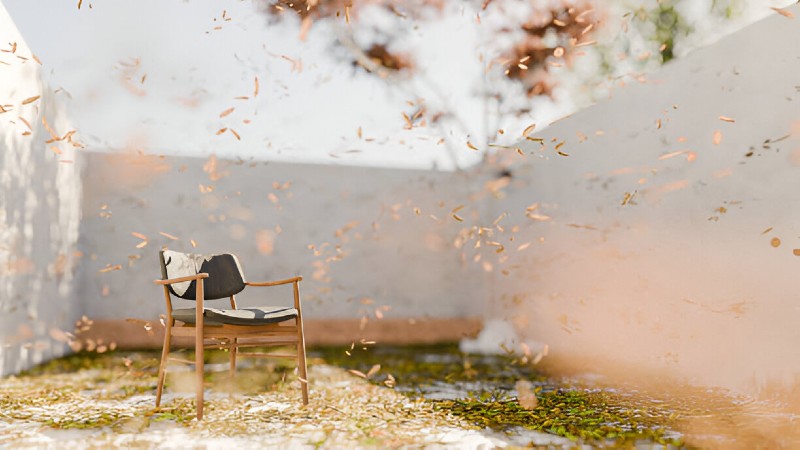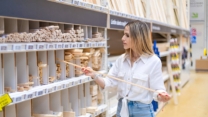
The Joy of Minimalism: Less Stuff, More Freedom
For many, success has long been measured by accumulation—the bigger house, the fancier car, the overflowing wardrobe. But a growing number of people are discovering that this chase for more often leads to less happiness and a deeper sense of being overwhelmed. Minimalism isn’t about deprivation or living with nothing. It’s a powerful act of conscious choice—a deliberate practice of removing the unnecessary to make space for what truly matters. In a society conditioned for constant consumption, adopting a minimalist lifestyle is about finding clarity, purpose, and peace.
The Powerful Paradox
When you embrace a minimalist mindset, you unlock a profound shift in your life. You’re not just decluttering your physical space; you’re freeing yourself from the mental, emotional, and even financial weight that clutter creates. This is the core of the minimalist paradox: letting go of things gives you more of what you truly crave.
- More Time: Stop spending your precious hours organizing, cleaning, and managing possessions you rarely use.
- More Focus: A clutter-free environment is a calm environment. When your space is clear, your mind has room to focus on personal growth, creativity, and the present moment.
- More Calm: The constant worry of losing, breaking, or replacing items disappears. Fewer possessions means less stress and a greater sense of peace.
The Art of Intentional Consumption
Instead of viewing minimalism as an act of sacrifice, see it as a shift to intentional consumption. It’s a purposeful journey where every item you own has a purpose or brings you genuine joy. This goes beyond the home and into your entire lifestyle.
Minimalism can be applied in various areas of life:
- Travel: Embrace the freedom of living out of a small backpack, focusing on experiences and a deeper connection with the world rather than the burden of heavy luggage.
- Lifestyle: Curate a capsule wardrobe with a few high-quality, versatile items. This simplifies your daily routine and removes the stress of having nothing to wear.
- Digital Life: Just like a cluttered room, a cluttered digital space can overwhelm your mind. Practice digital minimalism by closing unnecessary tabs at the end of the day or scheduling dedicated unplugged time.
A Practical Guide to Your Minimalist Journey
Minimalist living is a practice, not an overnight transformation. It’s about taking small, deliberate steps that build momentum and help you discover your own minimalist code. Here is a simple, actionable guide to get you started:
Phase 1: The First Purge Start with a small, manageable area that feels overwhelming, like a drawer or a single shelf. This helps you experience the immediate, rewarding feeling of an organized space without getting overwhelmed.
| The Letting Go Framework | Core Question |
| The One-Year Rule | Have I used or worn this in the last year? |
| The Joy Test | Does this item truly bring me joy? |
| The Who I Am Today Check | Does this item serve the person I am today? |
| The Responsibility Check | Will this be a hassle to manage, organize, or move? |
Phase 2: Building New Habits Once you’ve started decluttering, it’s time to build new habits that prevent clutter from returning and support your new lifestyle.
- Adopt the One-In, One-Out Rule: For every new item that enters your life, an old one must go. This maintains balance and intentionality.
- Embrace Responsible Disposal: Never throw away clothes, furniture, or appliances. Instead, sell, gift, or donate them to give them a new life and keep waste out of landfills.
- Avoid Impulse Shopping: Practice mindful consumption. Before you buy, ask yourself if the item is a need or just a want, and if it aligns with your values.
Finding More in a Life with Less
Minimalism isn’t about living a deprived life; it’s about living a more abundant and fulfilling one. As Socrates said, The secret of happiness…is not found in seeking more, but in developing the capacity to enjoy less.
By freeing yourself from the weight of possessions, you create space for the things that truly matter:
- Meaningful relationships: More time and energy for friends and family.
- Personal growth: The freedom to explore new hobbies, skills, and experiences.
- Self-worth: The realization that your value is defined by your character and actions, not your possessions.
Conclusion
The journey toward Less Stuff, More Freedom is a personal one. It’s a continuous learning process of asking important questions and making conscious choices. By letting go of the unnecessary, you’ll find a profound sense of clarity, purpose, and happiness that no material possession could ever provide.
Frequently Asked Questions (FAQs)
What is the core idea of minimalism?
The core idea of minimalism is a way of life focused on intentionally removing excess possessions and commitments to make space for what truly matters, leading to a life of more purpose and freedom.
Is minimalism only about physical possessions?
No, minimalism extends beyond physical possessions. It can be applied to different areas of your life, including your digital space, travel habits, finances, and relationships, to reduce clutter and stress.
How does minimalism improve mental clarity?
Minimalism helps improve mental clarity by reducing visual and mental clutter. A simplified environment allows your mind to feel less overwhelmed, making it easier to focus and think more clearly.
Can I still have sentimental items as a minimalist?
Yes. Minimalism is not about deprivation. It’s about conscious choice, so you can keep sentimental items that genuinely bring you joy and a positive connection to your past.
What is the best way to start a minimalist journey?
The best way to start is by beginning with a small, manageable area, like a single drawer or shelf. This small success can provide the motivation you need to continue decluttering and simplifying other parts of your life.
Does minimalism save you money?
Yes, embracing a minimalist lifestyle can significantly save you money. By reducing impulse purchases and focusing on intentional consumption, you can free up financial resources for experiences and goals that matter more to you.






